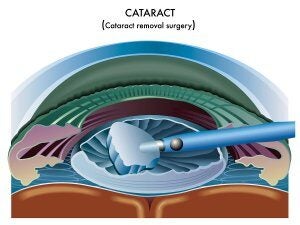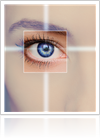-
A Look at Intraocular Lens Treatment Options
Patients undergoing cataract surgery have more options available to them than ever before. During cataract surgery, the natural lens of the eye is removed. Then, the eye doctor places a permanent lens implant. This is known as an intraocular lens (IOL). You can talk to an eye doctor in Chicago and watch this video to learn about the different types of IOL implants that are available .
For example, one option for cataract treatment is to have a monofocal IOL. This lens enables patients to have corrected vision at far, intermediate, or near distances. A newer type of IOL implant is the multifocal lens, which can accommodate both near and far corrected vision. There are also IOL options that are designed specifically for individuals with astigmatism.
-
The Cataract Surgery Procedure
 Cataracts are cloudy areas on the lens of your eye that interfere with your ability to see clearly. If you’re anticipating having cataract surgery near Chicago, you can talk to your eye doctor about what you can expect from the procedure. Your cataract surgeon will determine if you’re a good candidate for the surgery, inform you of the potential risks, and explain the many benefits of cataract surgery.
Cataracts are cloudy areas on the lens of your eye that interfere with your ability to see clearly. If you’re anticipating having cataract surgery near Chicago, you can talk to your eye doctor about what you can expect from the procedure. Your cataract surgeon will determine if you’re a good candidate for the surgery, inform you of the potential risks, and explain the many benefits of cataract surgery.Preparation
Before having any type of surgery, you can expect to undergo some tests and discuss your medical history. For cataract surgery, your eye doctor will perform an A-scan to measure the length of your eye. Then, keratometry is used to measure the curve of the cornea. These measurements will inform your eye doctor’s recommendations for the type of intraocular lens (IOL) implant that best suits your needs. The lens implant can provide full vision correction . In addition to discussing the different types of IOL implants available to you, you’ll be asked about your medical history. Your eye doctor will need to know if you’ve previously had eye surgery, such as LASIK surgery. Additionally, you’ll need to disclose all of your medications, since certain drugs can interfere with pupil dilation.
Procedure
There are a few techniques that may be used for cataract surgery; however, phacoemulsification is most often used. First, your eye doctor will apply a local anesthetic to eliminate discomfort. Then, a very small incision is made in the cornea. The ophthalmologist inserts a tiny instrument that emits high-frequency ultrasound to essentially liquefy the lens so that it can be suctioned out. The next step in cataract surgery is to place an IOL implant. Finally, the incision is closed.
Recovery
It’s important to follow your eye doctor’s post-operative directions. After your surgical procedure you will rest for a little while in a recovery area. You will need someone to drive you home after your surgery. You may be up and about as you wish, but avoid strenuous activities. Also you will experience sensitivity to light that may require you to wear sunglasses on the day of your procedure. You’ll also need to apply eye drops as directed by your eye doctor.
-
How LASIK Can Change Your Life
 Refractive errors make it difficult or impossible to complete daily tasks without the help of eyeglasses or contact lenses. LASIK eye surgery can fix these issues and allow you to see clearly without the help of corrective lenses. Keep reading to find out how it can change your life:
Refractive errors make it difficult or impossible to complete daily tasks without the help of eyeglasses or contact lenses. LASIK eye surgery can fix these issues and allow you to see clearly without the help of corrective lenses. Keep reading to find out how it can change your life:LASIK can be used to treat nearsightedness, farsightedness, and astigmatism. The procedure is safe and simple and only takes a few minutes to complete. You need someone to accompany you to your appointment so they can drive you home safely, but you should notice extreme vision improvements as soon as the surgery is complete.
With the help of your eye doctor in Chicago, you do not have to suffer with bad vision anymore. After LASIK eye surgery, you do not have to waste time putting on your glasses or chancing your contact lenses in order to see. You can start living your life without vision restraints holding you back.
-
Spotlight on AMD and Low Vision
 February is AMD and low vision month, which means now is the time to learn more about these issues. Keep reading to find out what AMD and low vision can do to your eyes and when you should see an eye doctor in Chicago about the problem:
February is AMD and low vision month, which means now is the time to learn more about these issues. Keep reading to find out what AMD and low vision can do to your eyes and when you should see an eye doctor in Chicago about the problem:Age-Related Macular Degeneration
Age-related Macular Degeneration (AMD) impacts more than 15 million adults over 50 and is the top cause of vision loss. This condition develops gradually so a lot of people are not aware they have it until it causes significant vision loss. It usually affects the sharp central vision, which is what people use to see when they read, drive, look at other people, watch television, or do other daily tasks.
Low Vision
Low vision causes loss of eyesight that makes it difficult to complete tasks like reading or writing. Low vision can often be corrected with eyeglasses, medicine, or surgery. If the problem persists, though, a person might have to learn how to find new ways to complete certain activities.
Risk Factors for AMD
Although no one knows the exact cause of AMD, there are certain risk factors that could increase someone’s chances of suffering from this condition. High blood pressure, high cholesterol, and obesity all contribute to a person’s risk factor for AMD. Smoking, age, family history, gender, and race could all also increase a person’s risk for AMD.
Symptoms of AMD
People with AMD might notice blurriness, wavy lines, or blind spots in their vision. They might also notice straight lines or faces that look wavy. The condition might also cause doorways to appear crooked or objects to look farther away. If you have any of these symptoms, you should schedule an appointment with a specialist to get checked out. You can also get better lighting in your home and office and try to use high contrast when reading or writing. You might also want to use a handheld magnifying glass to help you see small print.
-
Diabetes and Your Vision
Diabetic retinopathy is the leading cause of blindness among working Americans. About 90 percent of severe vision loss from diabetes could be avoided, though.
There are currently about 24 million people with diabetes, many of whom will eventually be affected by vision issues that are a result of the disease. A lot of patients do not even realize that it is affecting their eyes until they experience significant vision loss.
Check out this video to learn more about diabetes and vision troubles. If you have diabetes, you should see an ophthalmologist in Chicago at least once a year to ensure that the disease is not affecting your ability to see.
-
Get the Facts About Cataracts
 Cataracts are common eye issues that tend to affect people as they age. Use this guide to learn more about cataracts and the problems they cause so you know when it is time to see an eye doctor in Chicago to help correct your vision issues:
Cataracts are common eye issues that tend to affect people as they age. Use this guide to learn more about cataracts and the problems they cause so you know when it is time to see an eye doctor in Chicago to help correct your vision issues:A Cataract
A cataract occurs when the lens of the eye gets cloudy. Most of the time, cataracts develop in older people, but they can happen to anyone of any age. By the age of 80, more than 50 percent of Americans have cataracts or have had custom cataract surgery to correct cataracts. Although this condition can happen in one or both eyes, it cannot spread from one eye to the other eye.
The Causes of Cataracts
The lens of the eye is comprised of mostly water and protein. In a healthy eye, the protein allows the light to travel clearly through it and to the retina. As the body ages, the protein might group together and create a cloud.
The Cataract and the Lens
Cataracts are a big deal because they make the lens cloudy . The lens is the part of the eye that focuses light on the retina, which allows you to see. If the lens is cloudy, the light cannot travel to the retina as well and it can severely hinder one’s ability to see. If you have blurry vision, you should schedule an appointment with an eye doctor in Chicago to see if you have cataracts.
The Kinds of Cataracts
In addition to a regular aging cataract, there are a few other kinds that could affect someone’s vision. A secondary cataract can develop after another kind of eye surgery. They can also be a side effect of health issues like diabetes or from steroid use. Traumatic cataracts might occur after an eye injury. Congenital cataracts can occur in babies or in young children. If your child has congenital cataracts, the eye doctor might need to completely remove the lens. Radiation cataracts might develop after exposure to radiation.
-
Spotlight on Dr. Craig H. Gerstein
 Dr. Craig H Gerstein is one of the best eye doctors in Chicago because he goes out of his way to ensure every patient gets the best service. Thanks to the talent of doctors like Dr. Gerstein, Gerstein Eye Institute helps patients fix their vision issues and improve the way they see.
Dr. Craig H Gerstein is one of the best eye doctors in Chicago because he goes out of his way to ensure every patient gets the best service. Thanks to the talent of doctors like Dr. Gerstein, Gerstein Eye Institute helps patients fix their vision issues and improve the way they see.After graduating with honors from Chicago Medical School, Dr. Gerstein completed an internship at MacNeal Hospital and his residency at Northwestern University Medical Center. On top of his work as an eye doctor, he also serves as an Assistant Professor of Ophthalmology at Northwestern University Medical Center.
Dr. Gerstein is board-certified by the American Board of Ophthalmology and a member of the American Academy of Ophthalmology, American Society of Cataract and Refractive Surgery, and Alpha Omega Alpha, the Honor Medical Society. He believes in using the latest technology and dedicated research to provide innovate and personalized care for every patient.
-
Reasons to Consider Having LASIK
 LASIK eye surgery is an effective way to correct refractive errors and improve the way you see. The procedure is a completely safe way to get better vision. If you are tired of relying on glasses or contact lenses, you should talk to your eye doctor in Chicago about the following benefits of this kind of eye surgery:
LASIK eye surgery is an effective way to correct refractive errors and improve the way you see. The procedure is a completely safe way to get better vision. If you are tired of relying on glasses or contact lenses, you should talk to your eye doctor in Chicago about the following benefits of this kind of eye surgery:It Brings You a Permanent Solution for Vision Problems
New advancements in eye surgery technology make the LASIK procedure more effective than ever before. The surgery actually changes the shape of your cornea, which helps light hit your retina the right way so you can enjoy perfect vision. Whether you are nearsighted or farsighted, LASIK can fix your issues. When you visit a reputable eye doctor for your LASIK procedure, you can enjoy lifelong results that eliminate the need to rely on glasses or contacts to see.
It Is a Quick and Safe Procedure
LASIK eye surgery is a painless way to correct your vision. The eye doctor can perform the surgery in less than 30 minutes. Since it is minimally invasive, there is very little downtime after the surgery is complete. The procedure is safe and helps you instantly improve your ability to see. Although you cannot drive on the day of your surgery, most patients can return to their regular schedules as early as a day after the procedure.
It Helps You See Your Best
While glasses and contact lenses provide an effective way to correct refractive errors, it is not ideal to have to rely on them to see. If you get LASIK eye surgery, you never have to worry about putting on glasses or popping in your contact lenses to see. You can have perfect vision as soon as you open your eyes in the morning without having to feel around for your corrective lenses. After a quick LASIK consultation and an even quicker procedure, you can enjoy improved vision that allows you to break your dependence on corrective lenses.
-
A Look at Cataracts
A lot of people deal with cataracts, especially in their older years. Once these clouds develop on the lenses, they will continue to get worse until they are treated. Custom cataract surgery in Chicago can target these problems on the lens to improve the way you see.
Cataracts affect the lens and hinder the way light hits the retina, which makes it more difficult to see. Without treatment from a qualified eye doctor, cataracts could eventually lead to blindness.
Check out this video to learn more about cataracts and how they can affect your vision. Schedule an appointment at a vision center near you to get a checkup and the treatment you need to improve your vision.
You can find the link here: http://youtu.be/K_jZCzRf4ww
